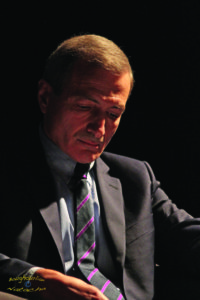By Philippe Raffi Kalfayan
Special to the Mirror-Spectator
Prime Minister Nikol Pashinyan’s decision to block access to the courts of the Republic of Armenia, using as an excuse the necessary purge of the judiciary, is unconstitutional, dangerous and barely hiding his impulsive reaction to the decision of the Avan Court judge to release Robert Kocharyan on bail and under surveillance.
The fate of the latter is a permanent and personal obsession of the prime minister. This impulsive reaction could compromise the positive transformation that Pashinyan has undeniably brought to Armenian public life since coming to power. The humiliating incarceration of Robert Kocharyan, we wrote in August 2018 (https://mirrorspectator.com/2018/08/23/pashinyan-needs-to-succeed-but-questions-remain-about-methods/), was legally questionable and politically useless; its only consequence was to make him a political victim and to awaken his inner warrior. Instead, it would have been wiser to quickly put in place the recommended transitional justice mechanism.
The pressure of two Artsakh presidents who brought their weight to obtain Robert Kocharyan’s conditional release, adds an additional risk, that of exacerbating an anti-Karabakh sentiment in the Armenian population supporting Pashinyan. On the legal side, the bail of Bako Sahakyan and Arkady Ghukasyan is also questionable: what would be the remedy of the judicial system of Armenia against these two persons, owners of multiple citizenships, one of them being “head of state,” if Robert Kocharyan were to not respect the conditions imposed for his release?
This does not detract from the fact that the Monday, May 20 appeal by Pashinyan to the “people” to block access to all courts and tribunals in the country is unconstitutional: it violates the separation of powers and contradicts the alleged non-interference in judicial system, although the Prime Minister defends himself from it. At 13:30, he launched a new appeal to the people, this time to unblock the courts’ access.










